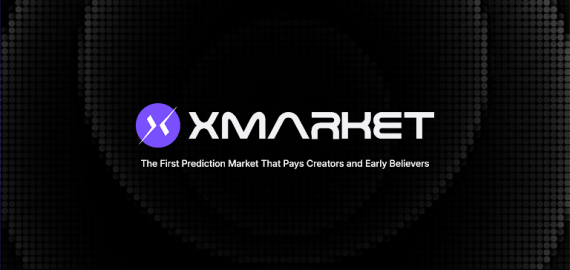AI Will Change Our World, Not Take It Over. Here’s Why

In Brief
Rather than replacing humans, AI is increasingly seen as a powerful tool for enhancing human potential, creating new jobs, and driving innovation—so long as it is developed and guided responsibly.

AI has time and again been portrayed as an existential threat to humanity, especially given the sensational headlines that have cemented the narrative of a “machine takeover” in the near future. Yet the people who know the technology well paint a more nuanced, optimistic picture, one where AI stands to enhance human capabilities, create new opportunities, and tackle problems once thought insurmountable (not the other way round).
In this regard, a recent analysis by PwC found that the number of jobs is rising in virtually every type of AI-exposed occupation, including highly automatable ones, with no sign of mass unemployment on the horizon, at least anytime soon. On the subject, Andrew Ng, a pioneer in machine learning, recently pointed out that AI, in its present iteration, can, at best, automate parts of jobs rather than replace entire role structures, adding:
“For the vast majority of jobs, if 20–30% is automated, then the job is going to be there. AI won’t replace people, but maybe people that use AI will replace people that don’t”.
Even global economic forecasts reflect this truth, with the World Economic Forum’s (WEF) latest Future of Jobs report forecasting that by 2030, AI and related technologies will create about 170 million new roles worldwide across domains like data analysis, AI maintenance, etc, thus offsetting losses in repetitive manual work.
Indeed, across many industries adopting AI, workers are not being idled en masse; instead, they seem to be collaborating with algorithms to achieve results neither could alone. And, while some disruption is happening (with certain tasks becoming obsolete), this evolution isn’t so different from past shifts .
AI as a personal ‘co-pilot’ for individual growth
Beyond workplace statistics alone, the vision for a more human-centric AI is already taking shape, transforming AI as an intimately personal tool for empowerment. To this point, Mariana Krym, co-founder and COO of tech firm Vyvo Smart Chain, believes that in the coming years “everyone’s going to have their personal AI… being part of their life day to day,” essentially stating that the technology stands to become a life co-pilot rather than a job-killer.
In fact, Krym’s company, Vyvo, has already put its vision into practice by combining wearable health devices with adaptive AI software to create a personalized interface that doesn’t just assist with work tasks but rather monitors one’s well-being, helps organize their day, and even watches out for their health.
Crucially, Vyvo has designed the system so that users retain ownership of their personal data as it runs on a decentralized framework where each individual’s data and AI model are private, secure, and controlled by the individual rather than a big tech company.
New opportunities in a new era of tech?
If AI isn’t so much taking over the world as it is rewiring it, another fair question is who stands to gain from this transformation. Tech entrepreneur Toufi Saliba, co-founder and CEO of HyperCycle, acknowledges that while AI is and will continue to disrupt the job market, those who embrace and drive the revolution “are likely to partake in the wealth creation that is inevitable.”
In his view, humanity is on the cusp of an economic boom fueled by AI, with entire new markets and services emerging and bringing one quadrillion dollars to the market over the next six years. While the figure might be debatable, the optimism seems to be quite tangible, but only for those who get involved.
However, what does “getting involved” look like in practice? For Saliba’s team at HyperCycle, it means building a decentralized network for AI, essentially an “Internet of AI” that allows anyone to contribute computing power or AI models and be rewarded for it. Moreover, AI algorithms themselves can trade services and information directly with each other, in a secure, peer-to-peer way, basically democratizing AI akin to how early internet infrastructure empowered countless new businesses.
The subtext of this optimism is not that AI will magically solve every problem or make everyone rich overnight; rather, it’s that there is huge potential for those who innovate and adapt as new categories of jobs seem to already be appearing, ranging from AI ethics specialists to prompt engineers to data trust officers (all roles that barely existed a few years ago).
Staying clear of an AI dystopia
From the outside looking in, the encouraging news is that both experts and the public largely agree on the importance of guiding AI wisely, with a recent Pew survey revealing that a majority of people and AI researchers want more control over AI in their lives and worry that government oversight may currently be too lax at the moment.
Lastly, far from making humans obsolete, AI done right can make them more capable, giving talented workers a hundred expert assistants or giving a small startup the tools of a giant. Thus, with open eyes and steady hands, humanity can ensure that it remains the author of its future, with AI as a powerful pen in its grasp. Interesting times ahead, to say the least!
Disclaimer
In line with the Trust Project guidelines, please note that the information provided on this page is not intended to be and should not be interpreted as legal, tax, investment, financial, or any other form of advice. It is important to only invest what you can afford to lose and to seek independent financial advice if you have any doubts. For further information, we suggest referring to the terms and conditions as well as the help and support pages provided by the issuer or advertiser. MetaversePost is committed to accurate, unbiased reporting, but market conditions are subject to change without notice.
About The Author
Gregory, a digital nomad hailing from Poland, is not only a financial analyst but also a valuable contributor to various online magazines. With a wealth of experience in the financial industry, his insights and expertise have earned him recognition in numerous publications. Utilising his spare time effectively, Gregory is currently dedicated to writing a book about cryptocurrency and blockchain.
More articles

Gregory, a digital nomad hailing from Poland, is not only a financial analyst but also a valuable contributor to various online magazines. With a wealth of experience in the financial industry, his insights and expertise have earned him recognition in numerous publications. Utilising his spare time effectively, Gregory is currently dedicated to writing a book about cryptocurrency and blockchain.


















































